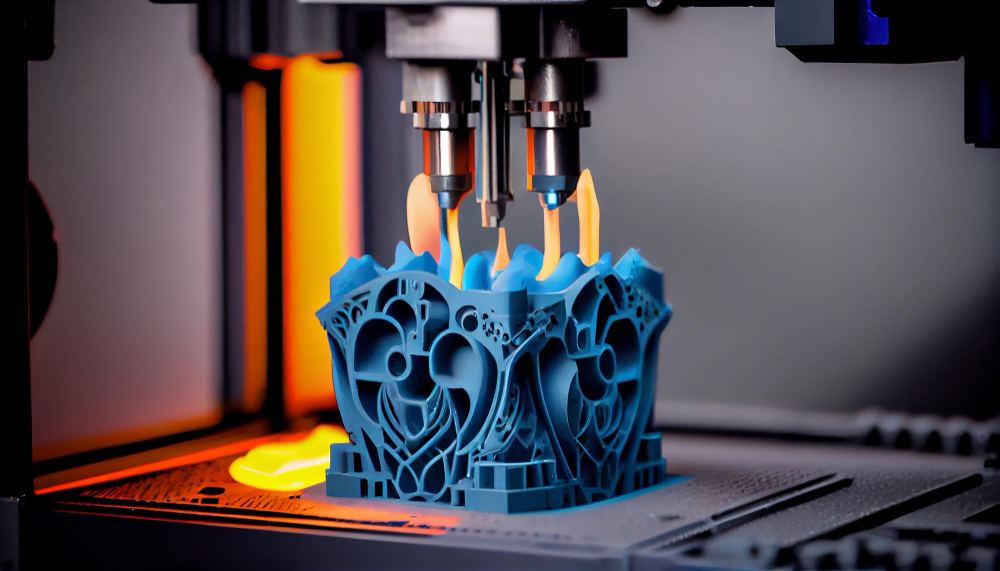Challenges of 3D Printed Food Businesses in Dubai
While 3D printing technology holds immense potential to revolutionize the food industry in Dubai, 3D-printed food businesses also encounter various challenges unique to this innovative approach.
From technical limitations to regulatory hurdles and consumer acceptance, navigating the complexities of 3D-printed food production presents significant obstacles for entrepreneurs and food manufacturers in Dubai. In this comprehensive overview, we will delve into the critical challenges faced by 3D-printed food businesses in Dubai, highlighting the barriers to adoption and strategies for overcoming them.
Common Challenges of 3D Printed Food Businesses in Dubai

Technical Complexity and Expertise
One of the primary challenges faced by 3D-printed food businesses in Dubai is the technical complexity and specialized expertise required to operate 3D printing equipment effectively. Unlike traditional food manufacturing processes that rely on familiar techniques and equipment, 3D printing involves mastering advanced software, hardware, and materials science concepts.
Entrepreneurs and food manufacturers in Dubai must invest time and resources in training staff, hiring skilled technicians, and acquiring specialized knowledge to implement 3D printing technology in their operations successfully.
Maintaining and troubleshooting 3D printing equipment poses ongoing challenges, as technical issues and malfunctions can disrupt production schedules and impact product quality.
Ingredient Compatibility and Formulation
Another significant challenge for 3D-printed food businesses in Dubai is ensuring ingredient compatibility and formulation consistency throughout the printing process. Unlike conventional cooking methods that allow flexibility and adaptation, 3D printing requires precise control over ingredient properties, texture, and viscosity to achieve desirable results.
Food manufacturers must carefully select and formulate ingredients suitable for extrusion and printing, balancing factors such as moisture content, viscosity, and flowability to optimize printability and taste.
Achieving consistency in ingredient formulation across batches poses additional challenges, as variations in raw materials and processing parameters can affect print quality and product performance, requiring meticulous quality control and testing procedures.
Regulatory Compliance and Food Safety
Regulatory compliance and food safety are paramount concerns for 3D-printed food businesses in Dubai, as innovative production methods and novel ingredients raise questions about product safety and consumer protection.
Dubai’s food regulatory authorities may lack established guidelines and standards for 3D-printed food, creating uncertainty and ambiguity for entrepreneurs seeking to enter this emerging market. Food manufacturers must navigate complex regulatory frameworks and engage with regulatory agencies to ensure compliance with food safety regulations, labelling requirements, and quality assurance protocols.
Additionally, addressing consumer concerns about the safety and nutritional quality of 3D-printed food products requires transparent communication, rigorous testing, and adherence to best practices in food safety and hygiene throughout the production process.
Consumer Acceptance and Perception
Consumer acceptance and perception present significant challenges for 3D-printed food businesses in Dubai, as unfamiliarity with this innovative technology and scepticism about its safety and taste may hinder market adoption.
Despite the potential benefits of 3D-printed food, consumers may perceive it as artificial, processed, or lacking in authenticity compared to traditional culinary methods. Overcoming negative perceptions and building trust in 3D-printed food products requires education, marketing efforts, and transparent communication about the technology’s advantages, safety, and nutritional value.
Food businesses in Dubai must engage with consumers through tastings, demonstrations, and promotional events to showcase the creativity, quality, and innovation of 3D-printed food and dispel misconceptions about its production methods and ingredients.
Cost and Scalability
Cost and scalability are significant challenges for 3D-printed food businesses in Dubai, as initial investments in equipment, materials, and infrastructure can be prohibitively expensive, especially for startups and small-scale operations.
While 3D printing offers customization, efficiency, and waste reduction advantages, the high upfront equipment and materials costs may outweigh the potential savings in labour and production expenses. Additionally, scaling up 3D-printed food production to meet growing demand presents logistical and operational challenges, as equipment limitations, production bottlenecks, and supply chain complexities may hinder scalability and impede business growth.
Entrepreneurs and food manufacturers in Dubai must carefully assess the economic feasibility and long-term sustainability of 3D-printed food ventures, balancing investment costs with potential returns and market opportunities.
Conclusion
In conclusion, 3D-printed food businesses in Dubai face various challenges related to technical complexity, ingredient compatibility, regulatory compliance, consumer acceptance, cost, and scalability.
Navigating these challenges requires technical expertise, regulatory engagement, consumer education, and strategic planning to successfully adopt and commercialize 3D-printed food products in Dubai’s dynamic culinary landscape.
Despite the obstacles, the potential benefits of 3D printing technology – including customization, efficiency, and innovation – make it an attractive option for forward-thinking entrepreneurs seeking to differentiate their offerings and capitalize on emerging trends in the food industry.

















